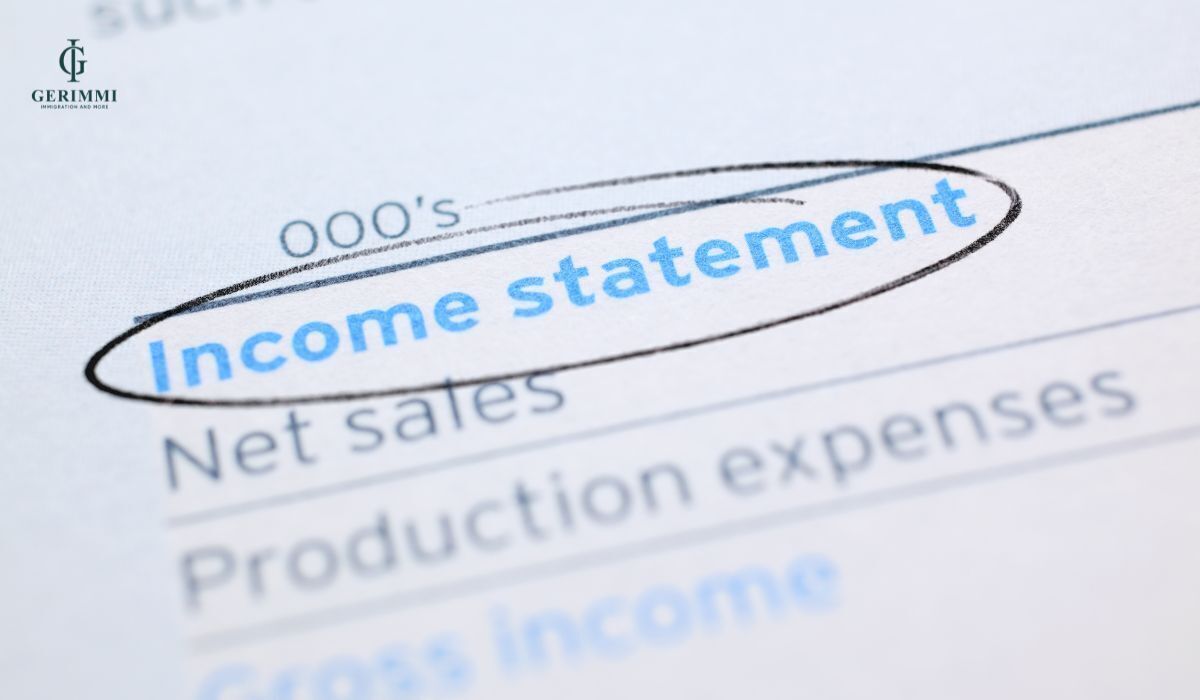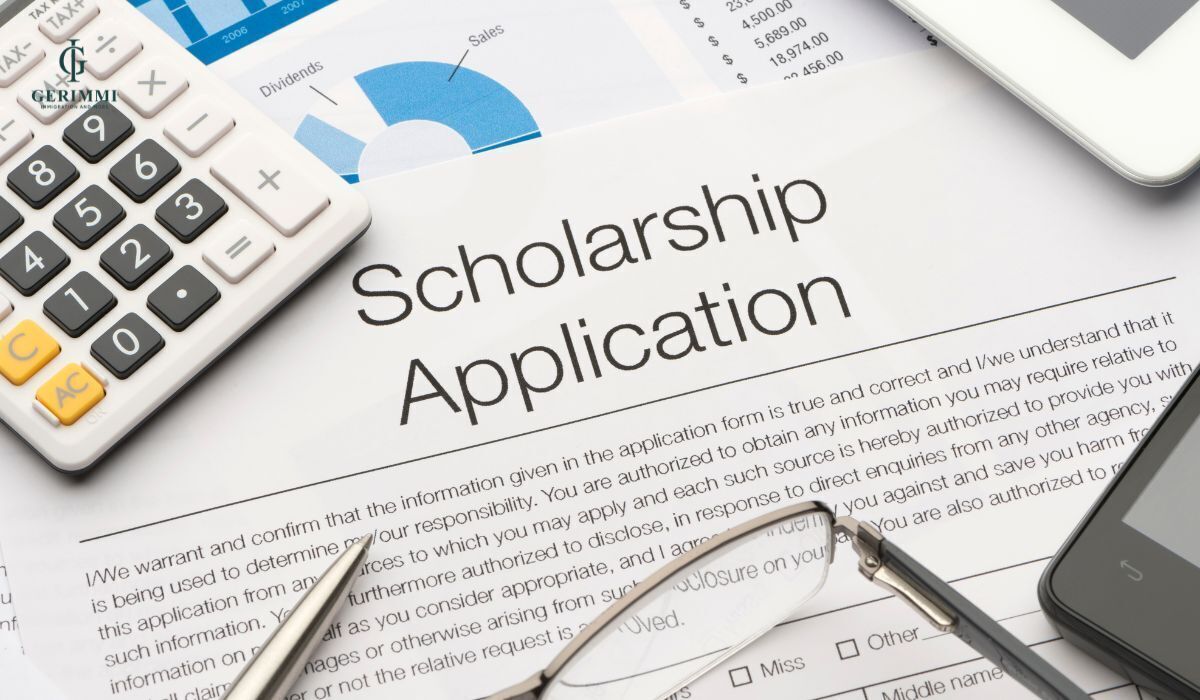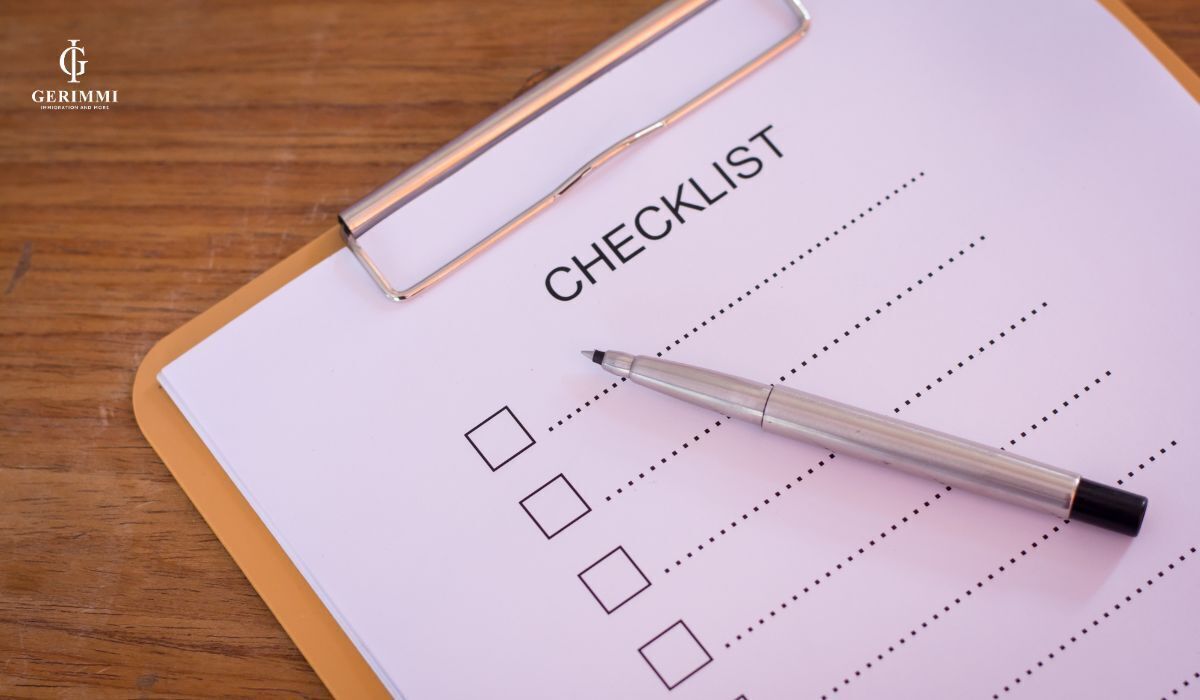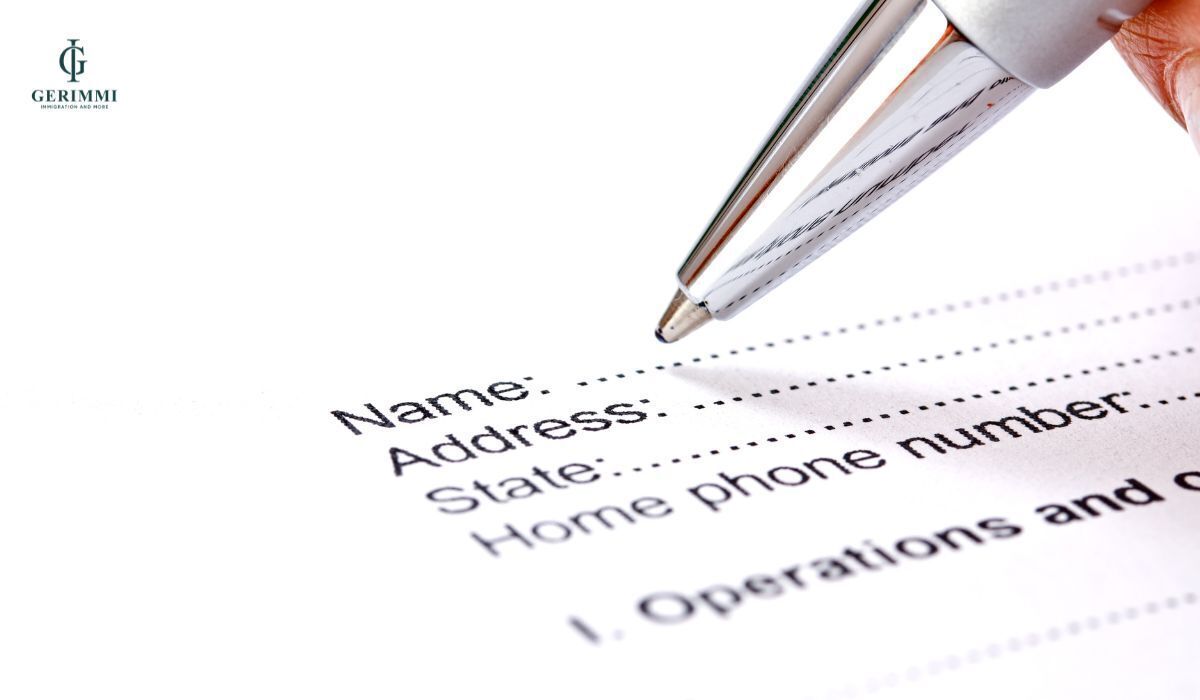Proof of financial resources is one of the most important and mandatory steps when preparing your student visa application. Proper preparation not only helps your application "pass the barrier" successfully through the review round, but also demonstrates your seriousness and financial independence in your study abroad journey.
I. What is financial proof for studying abroad?
Studying abroad is not just about getting an invitation from a school or getting a high IELTS score - it's also about finances. One of the barriers that causes many visa applications to be rejected is not being able to demonstrate financial capacity clearly, transparently and reasonably. So, why is this so important?
1. Why embassies require financial proof
Before issuing a visa, the embassy needs to make sure that you really have the ability to pursue the study abroad journey without becoming a public charge or immigration risk. Countries have clear reasons for requiring proof of funds:
- Ensure international students have sufficient financial means throughout their studies
This is a prerequisite to help international students have a stable study journey, without interruption due to financial reasons. When you prove that you (or your sponsor) have enough money to cover tuition fees, living expenses and other expenses, you are demonstrating the feasibility of the entire study abroad plan.
- Preventing disguised immigration through studying abroad
Developed countries are very wary of people using student visas to illegally settle down. Clear financial proof helps them filter out candidates with genuine study purposes, avoiding the situation of using visas to stay illegally.
- Create a stable and proactive mentality for students when living away from home
Not only serving the visa application process, financial proof is also a step to help you prepare mentally for living independently in a foreign land. When you know you can afford it, you will be more confident and secure to focus on studying, without being pressured by a lack of money.

2. Its role in visa approval
Preparing complete and appropriate financial documentation is not only a requirement – it is also a key factor in the visa approval process. Many cases of visa rejection despite very strong academic records, simply because finances are not convincing.
- Is one of the decisive factors in visa applications
Consular officers will assess the credibility of your application through your financial capacity. A logical, transparent financial profile will help confirm that you are capable of studying long-term, without the need to work illegally or leave the course for financial reasons.
- Direct impact on review speed and interview results
For countries that require visa interviews such as the US, Australia, Canada, etc., financial records are often asked very carefully. If you have a good record, clear, easy-to-understand and correct documents, the possibility of getting a visa will be significantly higher. On the contrary, if the source of funds is unreasonable (for example, a savings account opened just a few days before the submission date), you will easily be rejected due to suspicion of fraud.
II. How much money is required to prove financial ability? (By country)
One of the first questions asked when preparing to study abroad is: "How much money do I need to prove my finances?" - The answer will vary depending on the country you plan to study in, the standard of living there, and the visa policy of each country.
|
Nation |
Minimum amount of money required to prove |
Additional notes |
|
Virtue |
~€11,904/year (2025) |
Open a blocked account (Sperrkonto), withdraw up to €992 per month for spending. |
|
Finland |
€6,720–€8,000/year |
A blocked account is not required, but an equivalent balance in a bank account is required. |
|
Australia |
A$29,710/year |
Including living expenses, tuition fees, OSHC insurance costs. Income documents required if applying for fast track. |
|
America |
$25,000-$50,000/year |
Depending on the school, you will need to have enough funds to cover tuition and living expenses on your I-20 or DS-2019 form. |
|
Older brother |
£12,006/year in London, £9,207 elsewhere |
A minimum account balance of 28 days prior to the visa application date is required. |
|
Canada |
CAD 10,000-20,000 + tuition |
Studying in Canada under SDS requires a GIC worth CAD 10,000 + 1 year tuition. If not under SDS, more complicated financial documents must be submitted. |
General Notes: This is the minimum amount required to pass the visa screening. However, if you want a stronger application and a higher chance of getting a visa - prove at least 20-30% of the required level, showing financial stability, not only "just enough" but also having risk reserves.
III. Common forms of financial proof
Not all countries require you to have a specific amount of money in your bank account. Depending on where you live, there are many ways you can prove your financial ability. The important thing is: all must be logical, transparent and trustworthy.
1. Savings account (bank balance confirmation)
A savings account is the simplest way to show that you have money available to pay for tuition and living expenses. The account should be opened at least 1-3 months before submitting your visa application (depending on the country). The deposit amount must be equal to or higher than the consulate's requirements. Some countries such as the UK and Australia pay close attention to this. Balance maintenance period - usually must be continuous for 28 days or more.
2. Monthly income (employment contract, salary statements)
If your parents or relatives are your sponsors, you should provide: employment contract, 3-6 months salary statement, personal income tax certificate, or bank account statement with stable cash flow. This is proof that your family has a steady income, enough to cover tuition, accommodation and other expenses.

3. Owned assets (real estate, vehicles, stocks, etc.)
Documents such as land titles, vehicle registrations, stocks, or business licenses can be included to strengthen the application. Although not required in all countries, large assets prove financial strength and help avoid suspicion of “book-building” or illegal immigration intentions.
4. Scholarships or sponsorship letters (if available)
If you receive a full scholarship or a sponsorship letter from a reputable organization, this is almost a “golden ticket” that completely exempts you from other financial proof requirements. The documents must clearly show the value of the scholarship, the accompanying conditions, the application period and the sponsoring organization. A sponsorship letter from a relative can also be used, if it clearly shows the relationship and financial capacity of that person.

IV. How to prepare your financial proof documents
Proving financial means is not simply about "having money", but having all kinds of documents proving that you have a stable, clear, legal and reliable source of finance to study and live abroad.
Step 1: Determine the minimum financial requirement
First, you need to determine minimum amount to prove according to the requirements of the country of study:
- Find out the level minimum cost of living, First year tuition, and the other additional costs (insurance, air tickets, documents, etc.).
- Check information from the consulate, school website, or government immigration website of that country.
For example: Studying in Germany requires 11,904 EUR in a blocked account; Canada (SDS) requires 10,000 CAD + first year tuition paid.
Step 2: Plan your finances early
Don't wait until the deadline to start saving. A smart financial plan starts here 3-6 months ago:
- Create a savings book: Open a book in your name or the name of your sponsor (parent), maintain a balance of at least 1-3 months.
- Plan your money transfer wisely: Avoid "shocking" deposits of a large amount of money in a short period of time right before printing the book.
- Proof of origin of money: If money is transferred from many other accounts, it is necessary to keep receipts and transfer papers with clear content.

Step 3: Identify the appropriate proof method
Depending on your family's conditions and requirements from the host country, you can choose one or a combination of the following forms:
- Savings book (balance requirement + stability maintenance time)
- Proof of monthly income (employment contract, salary statement, tax return,…)
- Property owned (real estate, cars, stocks, business licenses, etc.)
- Scholarship or official sponsorship letter
Determine who the primary sponsor is and what documents are available to choose the appropriate option, saving time and preparation costs.
Step 4: Prepare all necessary financial documents
Below are the most common documents, divided by type of proof:
If using a savings book:
- Original savings book (or balance confirmation with bank stamp)
- Statement of account transaction history for the last 3 months
- Interest confirmation (if required)
If using monthly income:
- Labor contract or appointment decision
- Salary statement for the last 3-6 months
- Certificate of personal income tax payment (PIT)
- Certificate of income from the company

If using assets:
- Red book, land use rights certificate
- Car registration
- Stock documents, investment accounts
- Business license, revenue invoice if owning a private company
If using a scholarship or sponsorship letter:
- Scholarship letter stating value, duration, conditions
- Tuition and living expenses sponsorship contract (if there is a sponsor outside the family)
- ID card/CCCD and financial documents of the sponsor
Step 5: Translate and notarize your documents
All documents submitted with a study abroad application must be notarized in English or language required of that country (German, French, Japanese,… if needed).
- Should use a professional translation unit, consular standard.
- Double check the information on the translation: Full name, date, amount, book number, tax code,...must match the original.
- Make sure documents are translated at least 1-2 weeks before the application deadline to allow time for corrections if there are any errors.
Step 6: Check and organize your documents logically
A strong financial profile is not only complete but also needs to be streamline, clear:
- Classify documents by category (savings, income, assets, etc.)
- Mark each section with a cover sheet or notes.
- Attached checklist summarize your finances for easy reference by officers
Tip: You may want to write a brief cover letter explaining your family's financial situation and how you will cover your study and living expenses abroad.

Step 7: Submit and keep copies of your documents
- Submit original or notarized copy depending on consulate requirements.
- Always keep a complete copy in case of need for additional information or interviews.
- If you have a visa interview, you should practice answering financial questions such as:
- Who sponsors you?
- What is the sponsor's monthly income?
- How much is the tuition and living expenses each year?...
V. Important notes when proving financial capability
Even if you have money, your financial records can still be rejected if you don't follow some important principles below:
- Avoid "pushing money into your account" shortly before submitting your application: Suddenly transferring a large amount of money to a savings account right before the deposit date can easily raise suspicions about its authenticity. It is advisable to maintain a stable balance for a long enough period of time.
- The source of funds must be clear and legal: Visa officers may ask you about the source of the money – if you cannot explain clearly (where it came from, who gave it to you, why you transferred the money), it is easy to be suspected of being a “fake account”.
- Account holder and sponsor names must match personal information: If the sponsor is not a parent, the relationship, reason for sponsorship, and a valid letter of sponsorship must be clearly stated. Do not use the account of an unrelated stranger.
- Must be updated according to the latest national regulations: For example, Australia has just increased the minimum living standard, Canada has a new higher GIC requirement… you need to monitor closely to avoid underpayment or incorrect requirements.

VI. Frequently asked questions (FAQ)
1. Is financial proof required?
Most countries require proof of financial resources when applying for a study permit. However, if you have a full scholarship, or are applying for a priority visa (such as SDS in Canada), this requirement may be reduced or waived.
2. Can I borrow someone else's savings book to pay?
No. If the person whose name is on the book does not have a clear relationship with you (parents, legal guardians, etc.), the application is likely to be rejected. The sponsorship letter must state the reason for sponsorship, the relationship, and be accompanied by the person’s financial documents.
3. Do scholarship students need to prove financial resources?
Depends on the scholarship. If the full scholarship includes tuition + living expenses + insurance, you usually don’t need to prove anything else. But if it’s just a partial scholarship, you still need to prove the remaining costs.
4. Do I need to prove my finances after going abroad?
Not often, but it can happen. Some countries require you to maintain a minimum amount of money in your account (for example, a blocked account in Germany). Also, when you extend your visa or apply for a work visa or change your profession, you may have to prove it again.
Conclusion
Financial proof is an indispensable part to ensure that you are able to study abroad without becoming a burden to the host country. Preparing your application carefully, correctly and logically not only helps you increase your visa approval rate but also reflects the professionalism of your entire study abroad application.

